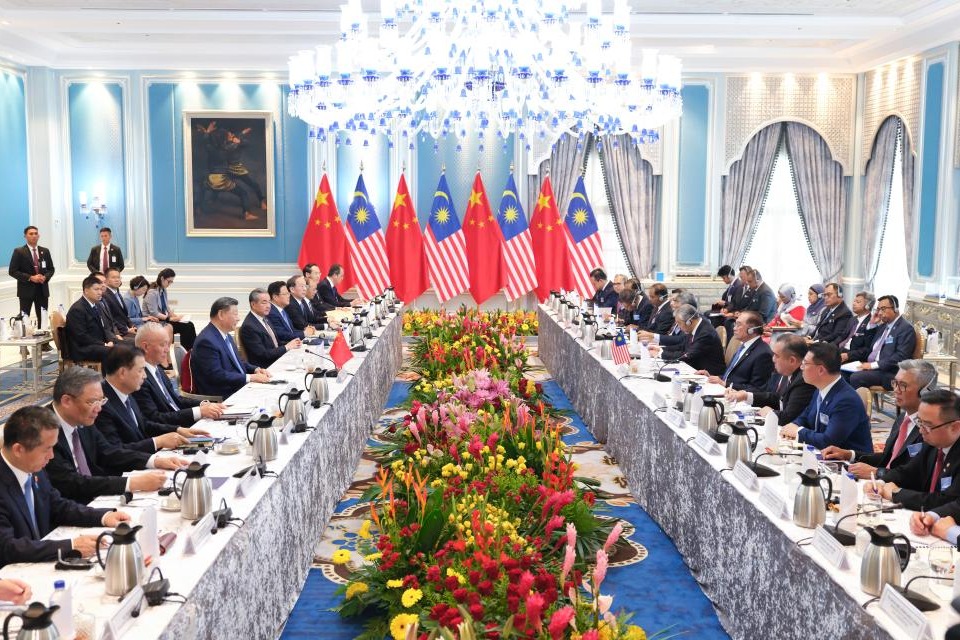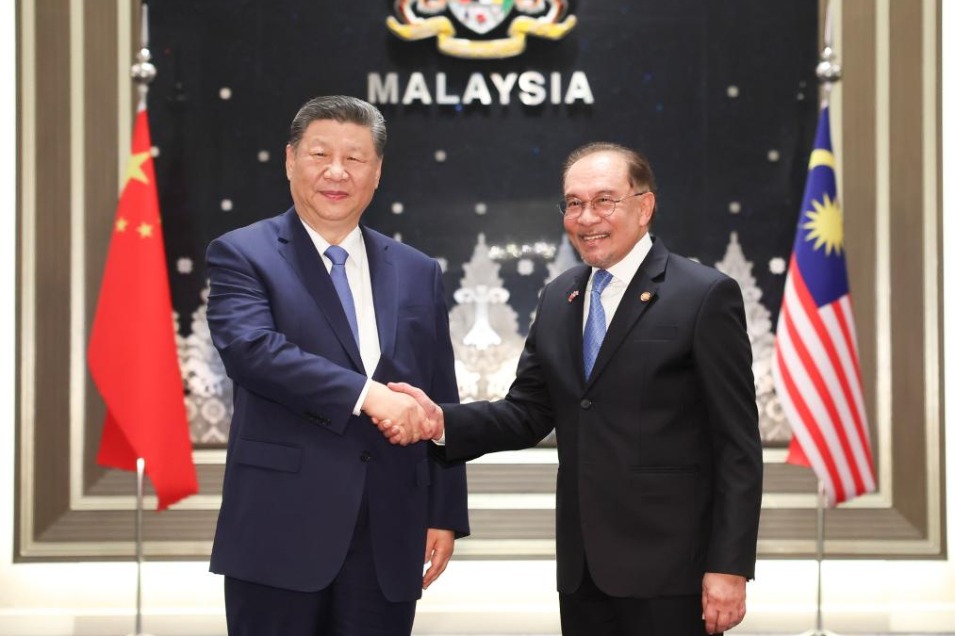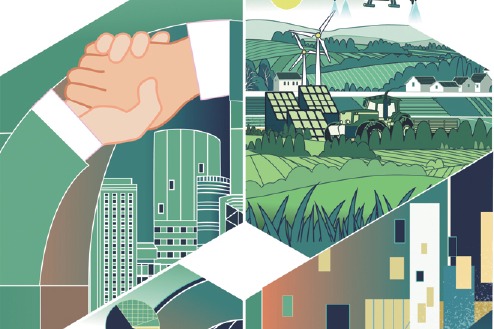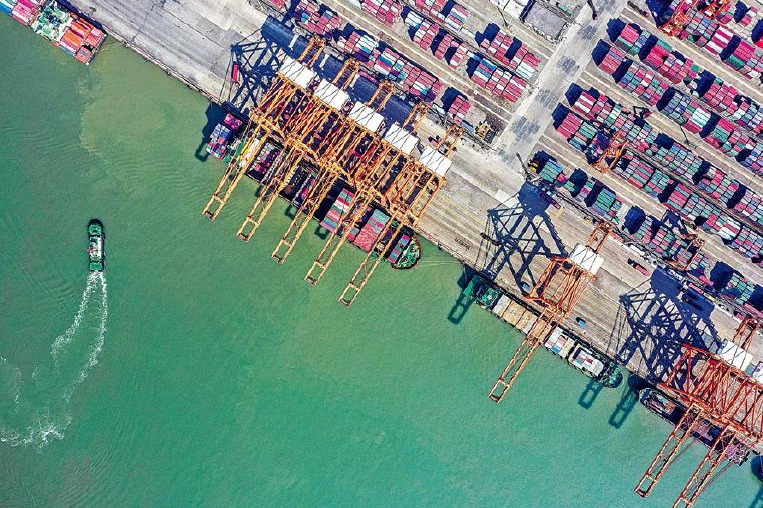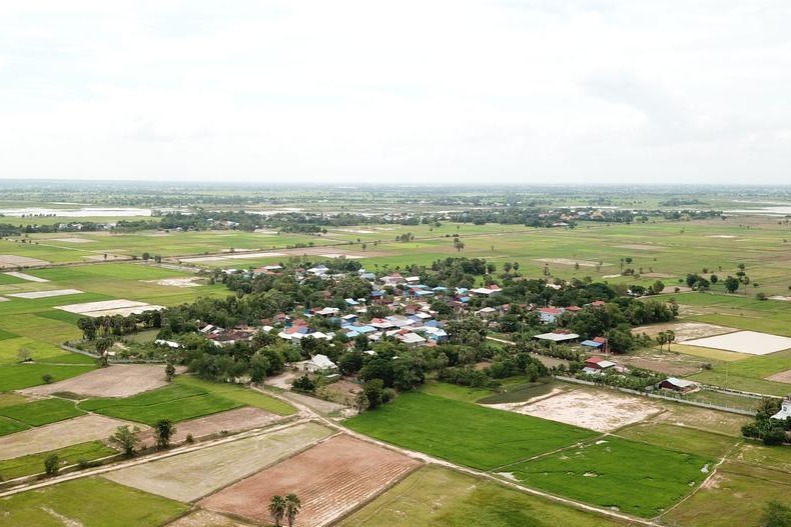Mutual trust drives growing cooperation

President Xi Jinping's ongoing visit to Cambodia four months after Cambodian Senate President Samdech Techo Hun Sen visited China offers the two sides a good opportunity to strengthen their "ironclad" friendship and realize the full potential of cooperation.
Cambodia has expeditiously developed its economy owing to the Belt and Road Initiative-induced improvement in infrastructure connectivity and logistics and industrial upgrading. Not to mention that China has helped build about 4,000 kilometers of roads, more than 10 big bridges and 10 hydropower stations in Cambodia.
Besides, after the opening of the Phnom Penh-Sihanoukville Expressway, the travel time between the two places has been halved, the journey is safer, and logistic efficiency has greatly improved. The latest example of the in-depth cooperation between the two sides is the National Road 71C. It opened on Saturday and will boost economic and tourism development.
Once haunted by power and energy shortages, Cambodia was forced to buy electricity from some neighbors at high rates, which made businesses reluctant to invest in the country. When I was studying in Cambodia about two decades ago, power outages could last up to half a day.
Thanks to China-Cambodia cooperation, many hydro and thermal power plants have been built in Cambodia. Today, Cambodia is not only self-sufficient in power but it can also export electricity to countries such as Singapore. With sufficient power supply, the country's power rates have been greatly reduced, making the country attractive to businesses.
The Sihanoukville Special Economic Zone in Cambodia with clustered manufacturing enterprises is another example of win-win China-Cambodia cooperation. The SEZ has attracted over 200 enterprises and provides employment for more than 30,000 local people.
Cooperation in the digital economy, too, has deepened, leading to the construction of digital infrastructure and the cultivation of talents. Chinese enterprises such as Alibaba and Huawei operate many such projects in Cambodia.
Bilateral trade in agricultural products, too, has grown. At a time when the United States' 49 percent "reciprocal tariffs" on Cambodian goods pose a real threat to the country, even though it has been suspended for 90 days, the country urgently needs the Chinese market to maintain its foreign trade growth. In fact, Cambodia can consolidate its presence in the Chinese market by exporting products such as pepper, coconut, freshwater fish, banana and soybean, which will increase Chinese consumers' options.
With global supply chains facing disruptions due to the US tariffs, the two countries are working together to find new ways to overcome the tariff crisis. They can do so by expanding their trade in agricultural products, which in turn can help develop cross-border e-commerce between the two sides. While the production and processing of primary agricultural products are emerging as new fields of cooperation, the two sides are also trying to realize the full potential of agricultural products' added value.
Therefore, the Chinese Academy of Tropical Agricultural Sciences has been working with relevant Cambodian institutions to boost the planting and processing of value added products. And many Chinese entrepreneurs have started businesses in Cambodia, improving output, promoting agricultural digitalization, and enhancing agricultural products' added value.
Moreover, the friendship and mutual trust between the two peoples have made Cambodia sign an action plan to build a community with a shared future with China, which has increased the demand for cultural exchanges. Cultural exchanges, in turn, have helped enhance mutual understanding and mutual support. While 2024 was the Cambodia-China People-to-People Exchange Year, the Cambodian side is also working actively to make 2025 a year of tourism for both peoples.
More good news is that the Cambodian research center at Beijing Foreign Studies University, through its joint research with Royal University of Phnom Penh last year, found that China is the most desired destination for overseas study and outbound trips for Cambodian youths.
Thanks to deepening mutual trust, Cambodia can play a bigger role in intensifying China's cooperation with the Association of Southeast Asian Nations now that the upgrading of the China-ASEAN Free Trade Area 3.0 has taken into account the differences among ASEAN members and made adjustments favoring ASEAN member states under the new negotiation framework.
Seventy years ago, when the Bandung Conference was held in Bandung, Indonesia, Cambodia's former king and prime minister Norodom Sihanouk and then Chinese premier Zhou Enlai forged a deep friendship, laying the foundation for the "ironclad" friendship between the two countries. Now, with frequent high-level exchanges, the two sides are not only deepening cooperation but also strengthening their traditional friendship.
The author is vice-dean of the School of Asian Studies, Beijing Foreign Studies University, and director of the Center for Cambodian Studies of BFSU.?The views don't necessarily reflect those of China Daily.
If you have a specific expertise, or would like to share your thought about our stories, then send us your writings at [email protected], and [email protected].


















